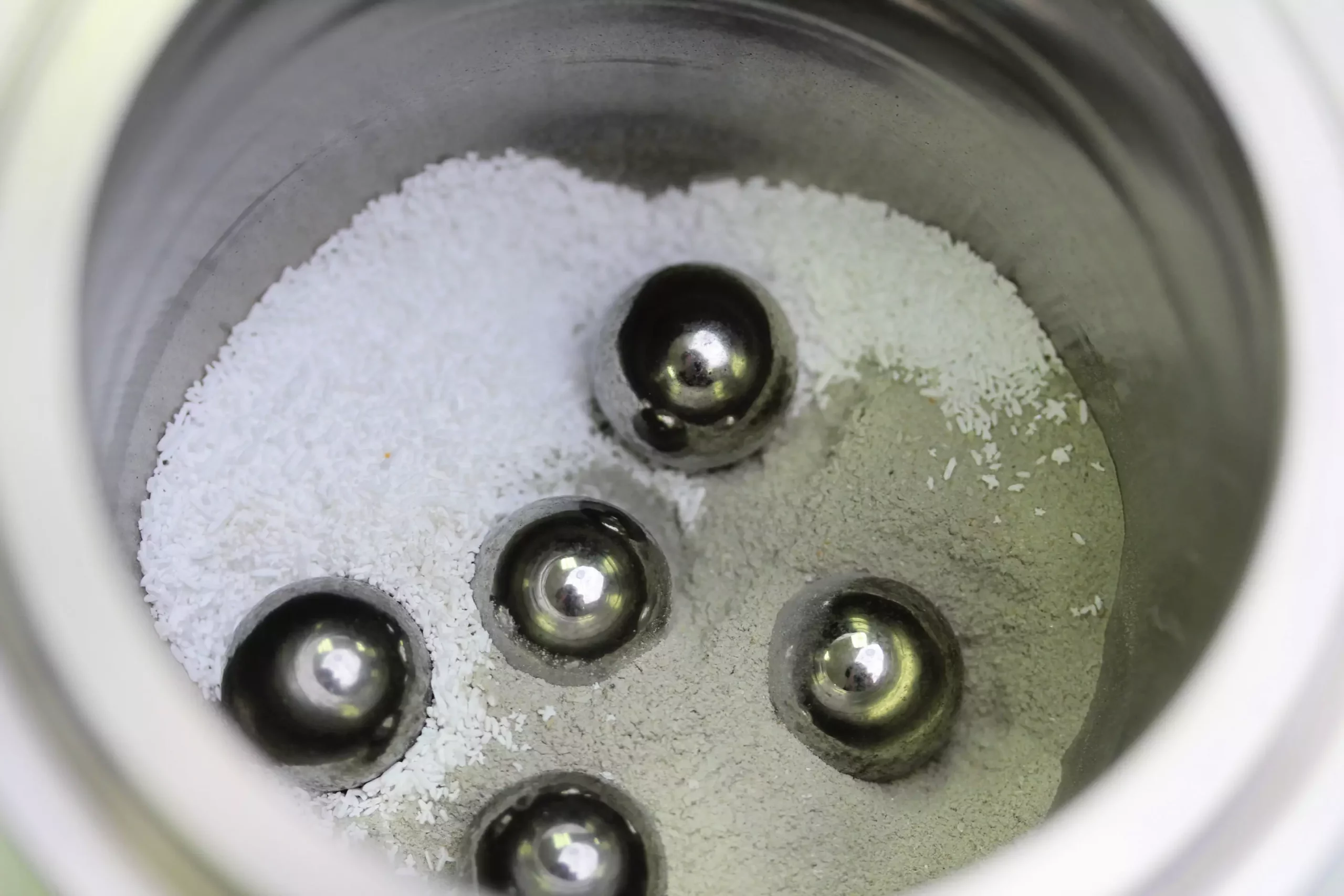Chemistry has long been associated with experiments involving colored liquids in beakers, flasks, and test tubes. However, the field of chemistry is vast and can encompass materials in all states: liquids, gases, and even solids. At the Critical Materials Innovation (CMI) Hub, a team of scientists is revolutionizing the way chemical reactions are initiated through mechanochemistry. One of their groundbreaking processes, MELLT, aims to extract lithium from hard-rock minerals using mechanical forces.
Lithium is a high-demand element crucial for the production of high-performance rechargeable batteries used in various technologies such as cell phones, medical devices, and electric vehicles. With the increasing popularity of electric vehicles, the demand for lithium has surged. The conventional methods of extracting lithium from brines and hard-rock minerals present significant challenges. While brine extraction is cost-effective but time-consuming, hard-rock mineral extraction is energy-intensive and generates greenhouse gases and hazardous waste streams.
The MELLT process developed by Ihor Hlova and his team at the CMI Hub utilizes mechanochemistry to streamline the extraction of lithium from hard-rock minerals. Mechanochemistry, a technique involving mechanical forces to initiate chemical reactions, has been underutilized in extraction methodologies. The unique aspect of mechanochemistry is that it provides the necessary energy for chemical reactions through mechanical forces, creating reactive spots on the surface of solid materials. This heightened reactivity enables the rapid and efficient extraction of lithium compounds from solid spodumene chunks.
In the MELLT process, solid spodumene chunks and a solid reactant chemical are placed into a chamber with steel balls. Through ball milling, the chamber undergoes various movements that subject the materials to rapid shear and impact stresses. These mechanical forces induce high-energy states within the chemicals, prompting them to react and form water-soluble lithium compounds. The resulting lithium products can then be extracted through a water wash, eliminating toxic waste streams and significantly reducing energy consumption.
Mechanochemistry offers a sustainable and environmentally friendly approach to conducting chemical reactions. By utilizing mechanical forces to drive chemical reactions, the MELLT process minimizes energy consumption, reduces toxic by-products, and accelerates the extraction of lithium compounds. This innovative approach not only improves the efficiency of lithium extraction but also contributes to a more sustainable future by diversifying lithium supply chains in the United States.
The development of MELLT is part of a broader collaborative effort supported by CMI involving national laboratories, universities, and industry partners. This collaborative initiative aims to discover new refining processes or enhance existing methods for extracting lithium from both hard-rock minerals and brine sources. By addressing critical supply chain issues and advancing sustainable extraction practices, the project paves the way for a more secure and resilient lithium supply chain in the U.S.
The innovative use of mechanochemistry in lithium extraction exemplified by the MELLT process represents a significant step towards sustainable and efficient resource utilization. By harnessing mechanical forces to drive chemical reactions, scientists are revolutionizing traditional extraction methods and advancing towards a more environmentally friendly future. The development of MELLT underscores the importance of interdisciplinary collaboration in addressing critical material challenges and shaping a sustainable future for resource extraction practices.


Leave a Reply